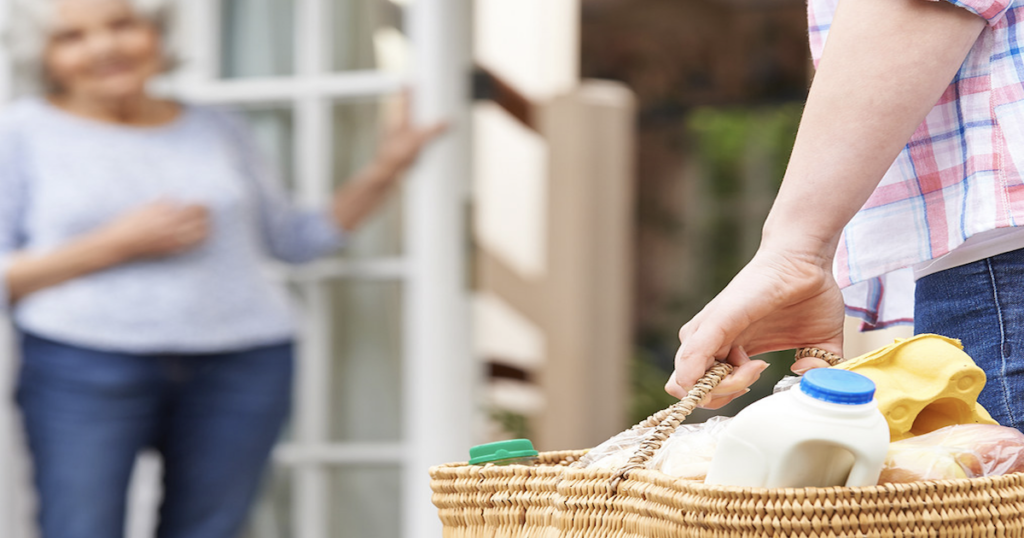
The Coronavirus will live in our memories for a lifetime. I am pre-fascinated by the analytical reports and cultural commentaries that will emerge based on an unpredictable worldwide epidemic. What will it say about our communities, our humanity, our assumptions and biases? What will it say about our churches and our government, our healthcare and our human fragility?
Weeks ago, we’d never have believed the NBA would be cancelled, colleges would be shut down, public schools would be closed indefinitely. That the stock market would tank, families who rely on hourly work and have no childcare would be in dire straits and the sick and elderly would be terrified, relegated to their homes.
The nursing homes are quarantine boxes, unable to accept the few visitors they previously received – a tragedy in and of itself. Parents of sick children or those dealing with compromised immune systems are living in fear and the rest of us, are adjusting to a temporary, new way of life.
In a nation where isolation and loneliness has contributed to skyrocketing rates of suicide and depression in recent years, we’ve been forced to carve out deeper isolation zones.
Churches and community events – usually social anti-depressants that nourish our souls, provide buffer from addiction and anxiety and offer the life-giving balm of human touch and laughter – are cancelled. Playdates and yoga classes are few and far between as we gather our collective humanity to serve Creation the best way we know how in a time of uncertainty.
Many are, for a brief moment in time, hacking down partisan walls and pressing into compassion for our neighbors of the opposite tribe. We’ve paused long enough to read past an angry political screed and see more clearly through the panes that can distort their humanity.
- Someone’s son lives in Italy.
- A friend’s husband has contracted the virus and isn’t doing well.
- Another’s newborn is dealing with respiratory issues in the NICU. Someone else is making agonizing decisions about their elderly parent.
- A Facebook friend doesn’t know how she will care for her kids while she’s at work.
- Another has a compromised immune system, but isn’t taking the threat to heart. We worry for their potential exposure – that they might be the one without a bed if hospitals reach mass capacity.
We don’t care if they voted for Trump or if they want Bernie to be President. They are, reductively or not, our fellow American and that is a good thing for the neighborliness of this nation.
Ironically, this communion of heart is occurring through physical disunion of body – the ants we are scattering further from one another in the face of threat — in effort to save the group.
My hope is that that tightening threads of humanity draw us together more tightly when we can touch and hug and gather once again. Will we remember the ideals and principles that made us disperse in March of 2020? Will we recall the elderly couple hiding out in their car waiting for someone kind they could ask to buy their groceries? Will we recognize the thousands of meals that church put together to provide for the many local children who relied on public school breakfast and lunch to eat every day? Will we pull from the ideals that led a 19-year-old NBA player to cover the salaries of every employee losing a paycheck at the Smoothie King Center?
Can we remember — for the love humankind and the uplifting of the most vulnerable? Will we embrace these memories that can ultimately lift the tide of kindness, civility and love beyond a few months in the history books? Can we please hold onto it for a little (lot!) longer?
In 2020, the most important people were the sick, the elderly, the poor. Any Christian who wasn’t already prioritizing these people groups has a chance to reset and start over right now — because the most vulnerable are always the most important. They were to Jesus and they should be to each of us.
Many of their lives don’t get a lot easier when this pandemic finally dies down. Bills will still be hard to pay, nursing homes will get back to their normal, empty hallways and the homeless will still be affected by the worst of illness and substance-use disorders. What can we take from this time and keep as sacred for when things go back to normal?
I loved this tweet thread, which surprised this garbage man when it went viral (be sure to read the whole thread)l:
I’m a garbageman, I can’t work from home and my job is an essential city service that must get done. It’s a tough job, from getting up pre-dawn to the physical toll it takes on my body to the monotonous nature of the job, at times it’s hard to keep on going.
— Jester D TGM (@JustMeTurtle) March 14, 2020
Thread 1/3
This our chance to rebuild our vision of our fellow American. It’s an election year and it’s been a heck of a divisive country since 2016. But we all have jobs to do, families to feed, traumas to overcome and dreams to nurture. Today, as we quarantine ourselves at home and tomorrow, when school doors re-open and highways re-jam with 9am traffic.
What will you remember about the Coronavirus? Hopefully, the face of your neighbor — the one painted by a God who loves them just as much as He loves you.
